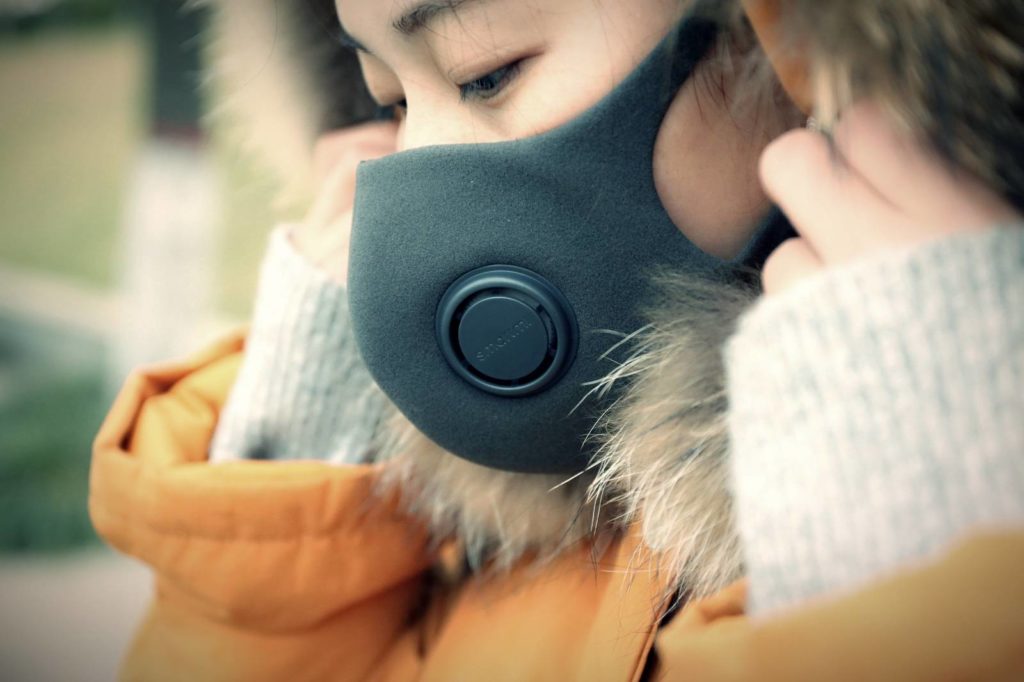Reduces risks: scientists are encouraged to wear masks at home

Chinese scientists have found that wearing a mask at home can effectively protect families from coronavirus infection. Usually, asymptomatic carriers will infect the entire family. But if their members wear masks not only on the street but at home, the risk of illness is almost halved.
Experts from the Beijing Center for Disease Control and Prevention say wearing masks at home can help protect family members from coronavirus infection and reduce the spread of infection. The results of the study were published in the “BMJ Global Health” magazine.
The transmission of the virus between family members is one of the main ways of its spread. The researchers explain: in China, 70% of infections occurred at home. Being in the same apartment with an infected person, it is quite difficult to avoid interaction with him. And if he has no symptoms, then he can remake all household members.
The researchers wrote: “Viral load is highest two days before the onset of symptoms and highest on the first day after the onset of symptoms.” “Up to 44% of transmission cases occur before the onset of symptoms.”
WHO and the British Ministry of Health have expressed doubts about the use of masks. But China believes that due to the appearance of masks, a large proportion of infections have been avoided. It is also recommended to use them in other countries-although masks do not provide 100% protection correctly. If used correctly, it can reduce the virus transmitted from infected persons due to coughing, sneezing, or even breathing and speaking Particles. It is now recommended to wear masks in closed public places (shops or vehicles).
The author of the work suggested that using the same measures at home and in public places (wearing a mask, maintaining social distance, and disinfection) will help curb the spread of the virus and protect other family members.
To verify this, they interviewed 335 people from 124 families, each of whom had at least one confirmed COVID-19 case between the end of February and the end of March 2020. They are interested in how such families maintain hygiene and what measures are taken to prevent infected families. The scientists then analyzed which factors can increase or decrease the risk of infection during the incubation period-14 days after the onset of symptoms.
Facts have proved that during this period, 41 out of 124 households experienced secondary transmission, that is, the virus spread from the first infected person to other family members. 77 relatives and children were infected from relatives, accounting for 23% of all respondents. At the same time, two-thirds of adults are infected. Which is consistent with the data that children are less likely to spread coronavirus. The symptoms were mild in 12 children, but not in 1 child.
83% of adults have mild symptoms and one in ten has severe symptoms. One of the patients is in critical condition.
Use disinfectant daily, ventilate, and maintain a distance of at least one meter to reduce the risk of virus transmission. This is effective even in large families. Frequent exposure also increases the risk of virus transmission by 18 times.
According to scientists, In families wearing masks at home before the onset of symptoms, the risk of secondary transmission was reduced by 79%.
The use of disinfectants is almost as effective-reducing the risk of infection by 77%.
The author concluded: “This is the first study showing the effectiveness of using protective masks, social distances, and regular disinfection in residential areas.”-It can be used as a basis for formulating recommendations to prevent transmission of infections between families. This result may also be useful for families of high-risk groups. Such as relatives of medical workers and quarantine personnel, and for COVID-19 treatment at home.
The researchers(scientists) emphasized: “The results show that COVID-19 patients are contagious before the onset of symptoms. And wearing a mask after the occurrence does not prevent infection.” Therefore, regardless of whether family members have symptoms. They should wear a mask at home-as a preventive measure, In case the family still has an infected person.
Also Read:
Games compatibility for PS4 with the PlayStation 5 console
OnePlus 8 Pro turned off the X-ray mode
In the USA, a strange girl with two mouths was born






